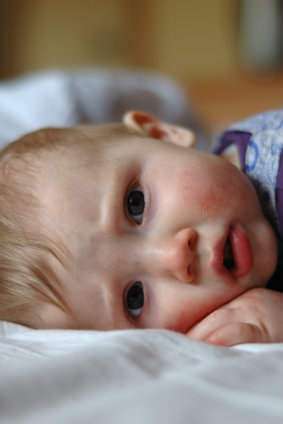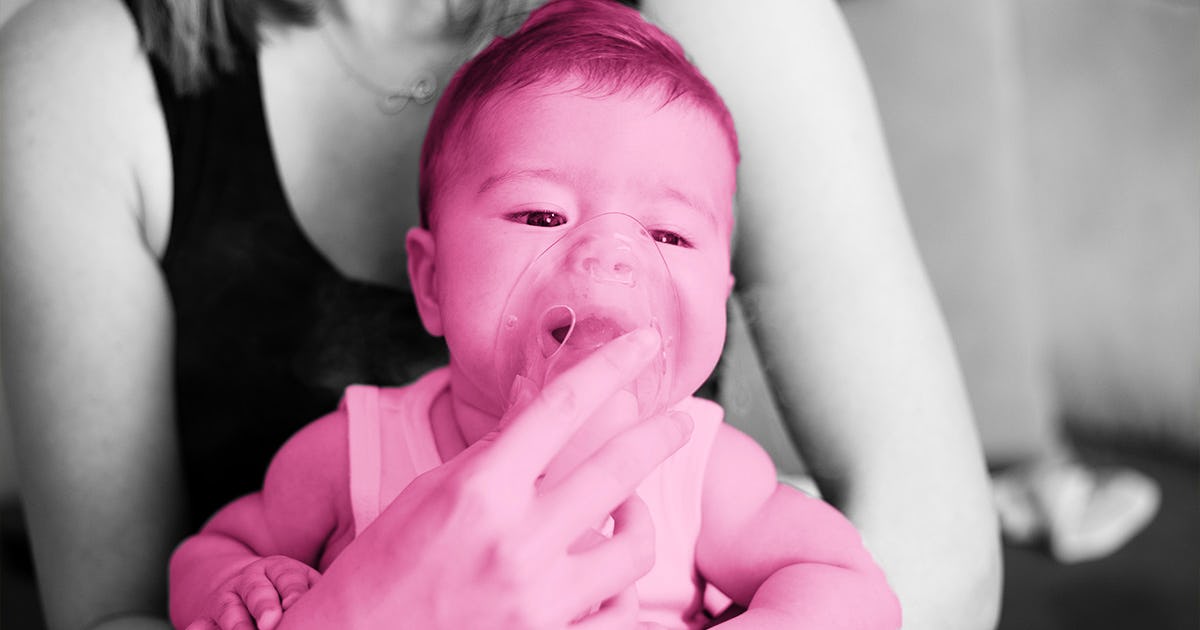rsv in babies meaning
Almost every child will get RSV by the age of 2. RSV is a contagious virus thats spread just like the common cold often between October and April.

Pin By Tabitha On Baby Baby Care Tips Baby Life Hacks Baby Advice
RSV positive means a.

. Ad Severe RSV Disease is Unpredictable Any Infant can be Hospitalized in their First Season. While healthier children have a lower mortality rate higher-risk babies have a greater chance of developing complications. An RSV test is used to diagnose respiratory syncytial virus RSV.
What is RSV in babies. Respiratory syncytial virus RSV is a serious cause of respiratory infection that can affect people of all ages. Its Time to Speak out for All Infants Against the Impact of Severe RSV Disease.
What Is Respiratory Syncytial Virus RSV. Respiratory syncytial virus or RSV is a viral infection that can cause significant symptoms in infants under the age of 2 years old. Never ignore any signs of breathing difficulty in an infant such as very fast breathing using a lot of extra muscles to breathe pulling at the neck nostrils flaring in and.
RSVor respiratory syncytial virus causes an upper respiratory infection. It is more common in winter and early spring months. It usually causes mild cold-like symptoms but the virus can be seriousespecially in infants and older adults.
In preemies RSV is a major health concern. Symptoms and signs include fever and nasal congestion and discharge. But unlike a cold RSV attacks the tiny airways of the.
RSV is an infection in your airways. Respiratory syncytial virus RSV is a common highly contagious illness that often causes mild upper. When the virus settles in the lower respiratory tract it causes.
A highly contagious viral illness in infants and young children. In very young infants with RSV the only symptoms may be. RSV is a virus that causes acute respiratory tract infections in infants children and adults.
RSV is the abbreviation for respiratory syncytial sin-SISH-uhl virus RSV. RSV is most common in infants between 2 and 8 months of age. RSV stands for the respiratory syncytial virus a virus that commonly causes respiratory tract infections especially in infants and young children.
Rising in prevalence during the fall and winter months RSV is a virus that mimics a bad cold in older babies and children. Respiratory Syncytial Virus RSV Respiratory syncytial virus RSV is a highly contagious viral infection. In infants and in young children RSV is the most common cause of lower respiratory tract infections.
Its usually not serious but symptoms can be much more severe in. Its so common that most children have been infected with the virus by age 2. Respiratory syncytial virus commonly known as RSV is a specific virus that has similar symptoms to the common cold but may cause inflammation of the smallest air.
In most healthy people RSV may present as nothing. What is RSV in babies. It usually shows up as a mild cold and lasts for five to seven days.
A babys airways arent as well-developed so a. But its most serious in babies. While most cases are mild with cold- and flu-like symptoms there is the potential for.
Most babies have been infected at least once by the time they are 2 years old. The typical symptoms of RSV in toddlers are fever nasal congestion cough and difficulty breathing. RSV is a common respiratory virus according to the CDC.
What is RSV in babies. This respiratory virus typically causes mild coldlike symptoms in older children and adults but it. RSV is a type of virus that primarily attacks the respiratory tractincluding the nose throat and lungs.
It is the number-one cause of sickness and re-hospitalization for preemies and prematurity is the greatest risk factor for severe RSV. Respiratory syncytial virus RSV causes infections of the lungs and respiratory tract. What Is RSV in Babies.
Runny nose Decrease in appetite Coughing Sneezing Fever Wheezing These symptoms usually appear in stages and not all at once. Respiratory syncytial virus RSV is a common illness that causes coldlike symptoms which will usually go away on their own after a few weeks. Respiratory syncytial virus RSV also known as.
However most infants who get the virus. But if a more serious. RSV is a viral illness that causes trouble breathing.
Respiratory syncytial virus is a common and very contagious virus that infects the respiratory tract of most children before their second birthday.

How To Recognize The Warning Signs Of Rsv Allergy Asthma Network

Baby Car Seat Tag No Touch Baby Sign Stroller Tag Wood Etsy In 2022 Baby Signs Baby Car Seats New Baby Products
:max_bytes(150000):strip_icc()/Getty_Images_1174925902-2000-b6cf92bb3c5d42efb2b4611a83195ad8.jpg)
Rsv In Infants Everything Parents Need To Know

Respiratory Syncytial Virus Rsv National Foundation For Infectious Diseases

What Tools And Supplies Should I Have On Hand If My Baby Gets Rsv Baby Remedies Baby Health Sick Baby

How Rsv Affects Babies And Young Children Babycenter

10 Things Every Parent Should Know About Rsv Respiratory Syncytial Virus Montreal Children S Hospital

Blog How To Prevent Rsv In Babies Reid Health

Baby Onesie Baby Outfits Newborn Baby Girl Outfits Newborn Newborn Shirts

12 Things To Do As A Couple Before Baby Arrives Before Baby Baby Kicking Baby Sleep Problems

Pin On Twinkle Little Star Invitations

Rsv In Infants Everything Parents Need To Know

How Do Babies Get Rsv Fatherly

Respiratory Syncytial Virus Rsv Vaccine Knowledge

Respiratory Syncytial Virus Rsv National Foundation For Infectious Diseases

Exceptional Baby Nursery Tips Are Readily Available On Our Web Pages Look At This And You Will Not Be Sorry Y Breastfeeding Baby Life Hacks Breastfeeding Tips

Was Your Baby Bigger Or Smaller Than Typical Mean Baby Sizes By Gestation Prematurity Awareness Month Preemie Babies Nicu Prematurity Awareness

It S Rsv Season Please Don T Kiss The Babies Her View From Home Newborn Newborn Care Baby Advice